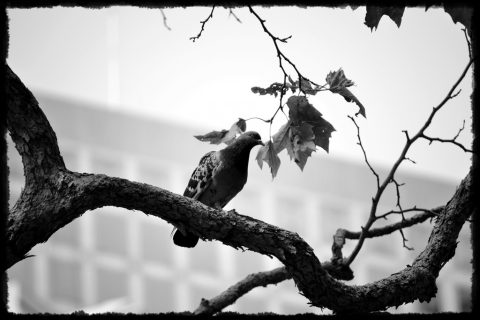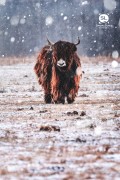Ueno Zoo is a real place with a dark history. In a lot of ways, this story seems so appropriate for our current times. What is it about Ueno Zoo that attracted you to writing about it?
My late-grandmother told me stories about Ueno Zoo. My grandmother was a Korean woman, or maybe that’s in question, because she’d been raised in Japan until her parents confessed they were Korean immigrants as she turned the age of nineteen. Ueno Zoo, in some ways, holds the mystery of my paternal lineage and of my grandmother’s youth. To her, Ueno Zoo was a sunny, shimmering place of magic and nostalgia. At seventeen, I visited myself and hung wishes along the Sakura pathways of the zoo. But, it wasn’t until later in my research that I discovered the shadows cast by the darker history over the memory of my grandmother’s words—no, between her words and the words never said out loud. She was a Japanese woman watching Korean women. She was then a Korean woman watching Japanese women. She was watching the war, and then she was in it.
This story reminds me a bit of Barthelme’s “The School,” where all those animals in the classroom are dying and everything escalates to the point of absurdity. I’m wondering, who are the authors who speak to you when you are writing flash fiction? Both in general and in terms of “Ueno Zoo?”
The strangest thing is happening. I am less and less able to grasp my own writing practices and processes. I don’t know what inspiration rooted, what divined voices intervened, or what boundaries defined my poetry and fiction. Before, I had such hunger and knowledge—more like certainty on these subjects. But now I feel shrouded in a sort of magic of the art that I hold precious and wish, of all things, not to make known. It’s an interesting development because I’m amid researching literary theory and Korean American literature. I am discussing authors and fiction every day. But here, in the realm of creation, I am dumb to everything but feeling. When I wrote “Ueno Zoo,” I had only the notion that this place feels a certain way to me that must be explored.
You write in so many genres and modes—poetry, prose, translation, and so forth; what is it that draws you to writing flash fiction? Or is distinguishing between genres even part of how you think about your work?
I’ve wondered this: Does a poem require it to be called a poem for it to be experienced as such? Are experiences unique to genres? These are questions I return to and I explore by writing in both poetry and fiction, translation and memoir, and so on. There are many more questions, but how to begin!
In the story, the children make signs to honor the animals, and then the story says, “But some children must have been born brave.” It’s an interesting line, not just because of the story’s events, but also because of the ending. Why did you decide to end with the children in this story, and how does their bravery connect to the fear that they feel at the end?
“Some children must be born brave” is a reoccurring thought I had as a child—witnessing the presence of something in someone else, and therefore, seeing its absence in myself. Maybe one must inherit such things, which was usually the answer. Does bravery have to be inherited? Then, what about siblings? I see my brother as brave, and myself, not so much. The children received propaganda through posters detailing the deaths of animals, purposed to summon their bravery and courage against the likes of war and the foreign powers at war. The reasoning is, well, it’s not so different from sensationalizing news, broadcasting images, and pinning fault somewhere. But I think, at the moment of the story, it pivots the focus on utilizing animal deaths towards utilizing children. And the children see, not through bravery but fear, that they themselves are animals.
Can you tell us a bit about your debut book A Lesser Love, which is just out from Pleiades Press?
The book is a collection of poems in three sections: Heaven, War, and Love. They carry the events of my childhood when I was separated from my parents, my research into the Korean War and the testimonials of Korean comfort women, and the multitudes of identities, formed and misinformed, built and then shattered. I have heard them called elegies, revolts, pastiches, a record of trauma and representation, but they are always vulnerable. I love to read them out loud—I think some things can’t be discovered until you do.



 The core workshop of SmokeLong Fitness is all in writing, so you can take part from anywhere at anytime. We are excited about creating a supportive, consistent and structured environment for flash writers to work on their craft in a community. We are thrilled and proud to say that our workshop participants have won, placed, or been listed in every major flash competition. Community works.
The core workshop of SmokeLong Fitness is all in writing, so you can take part from anywhere at anytime. We are excited about creating a supportive, consistent and structured environment for flash writers to work on their craft in a community. We are thrilled and proud to say that our workshop participants have won, placed, or been listed in every major flash competition. Community works.